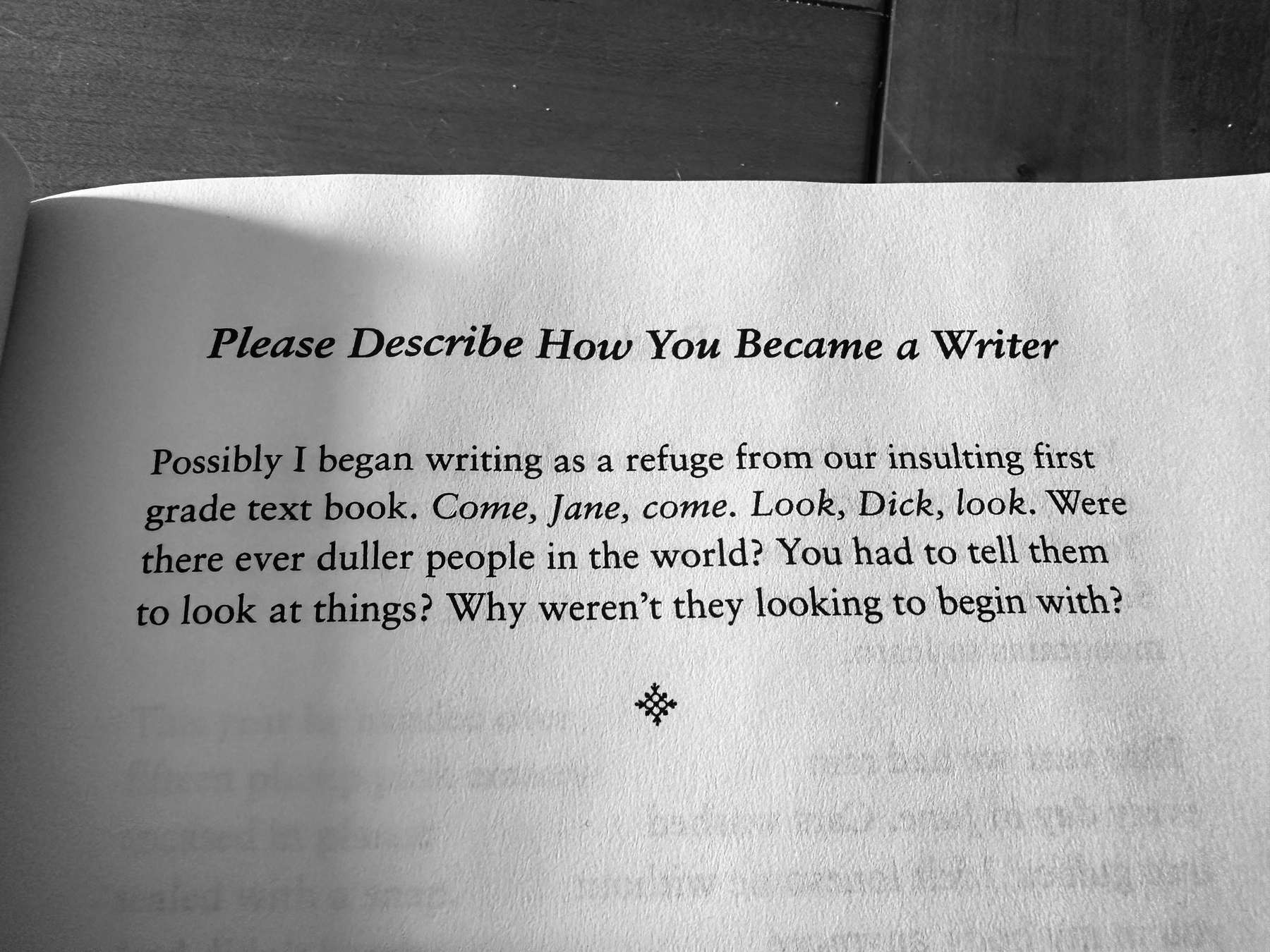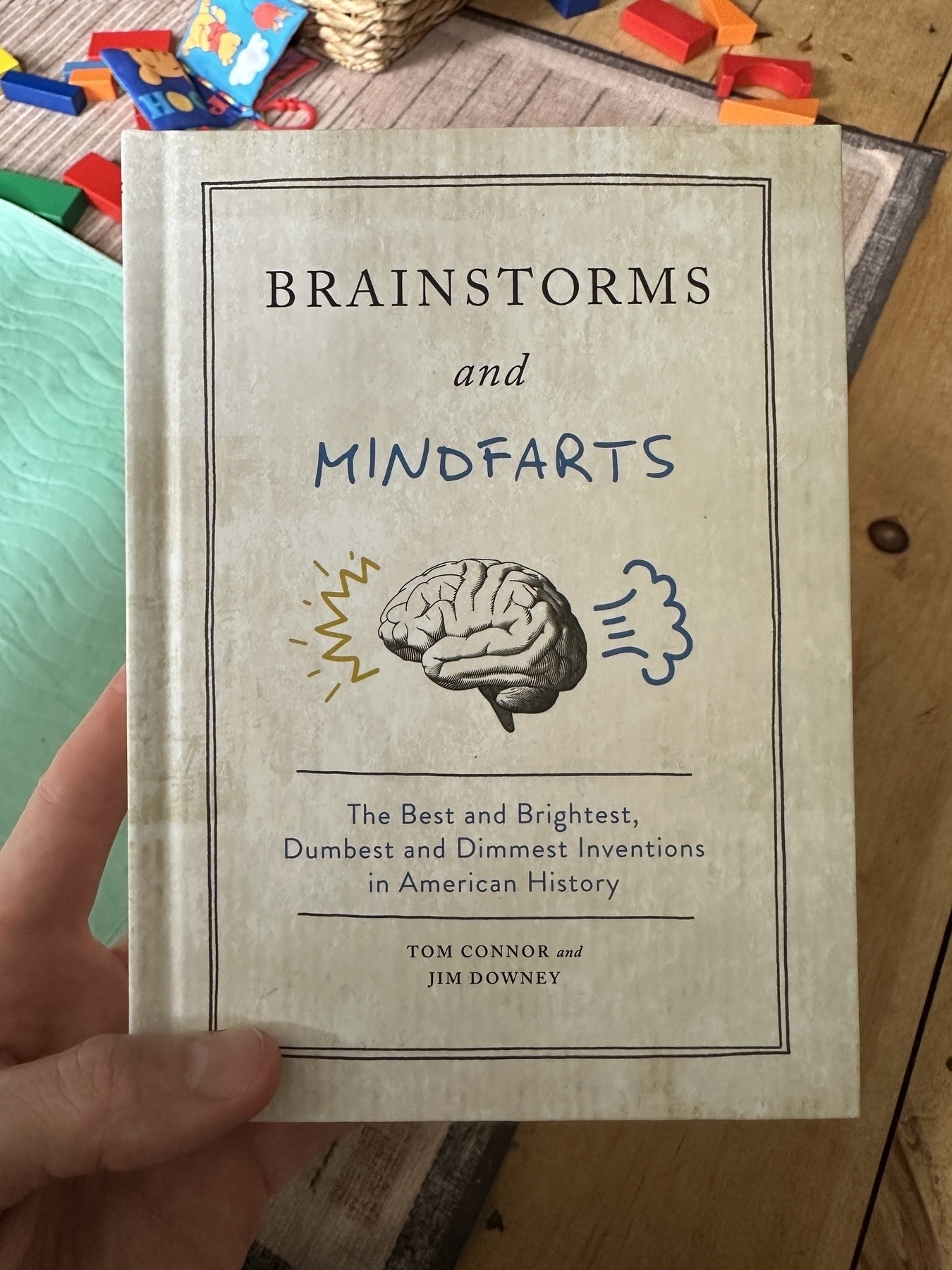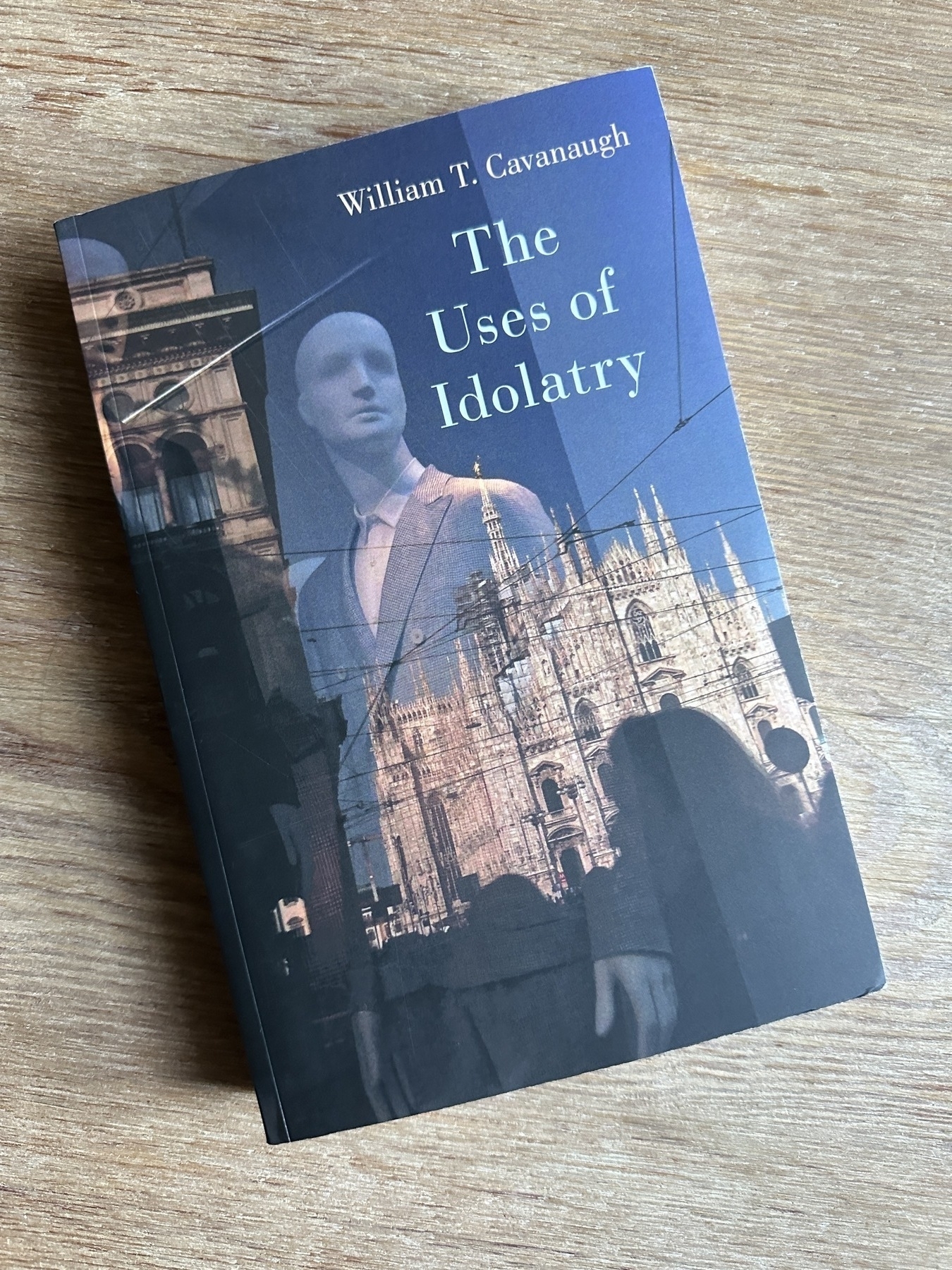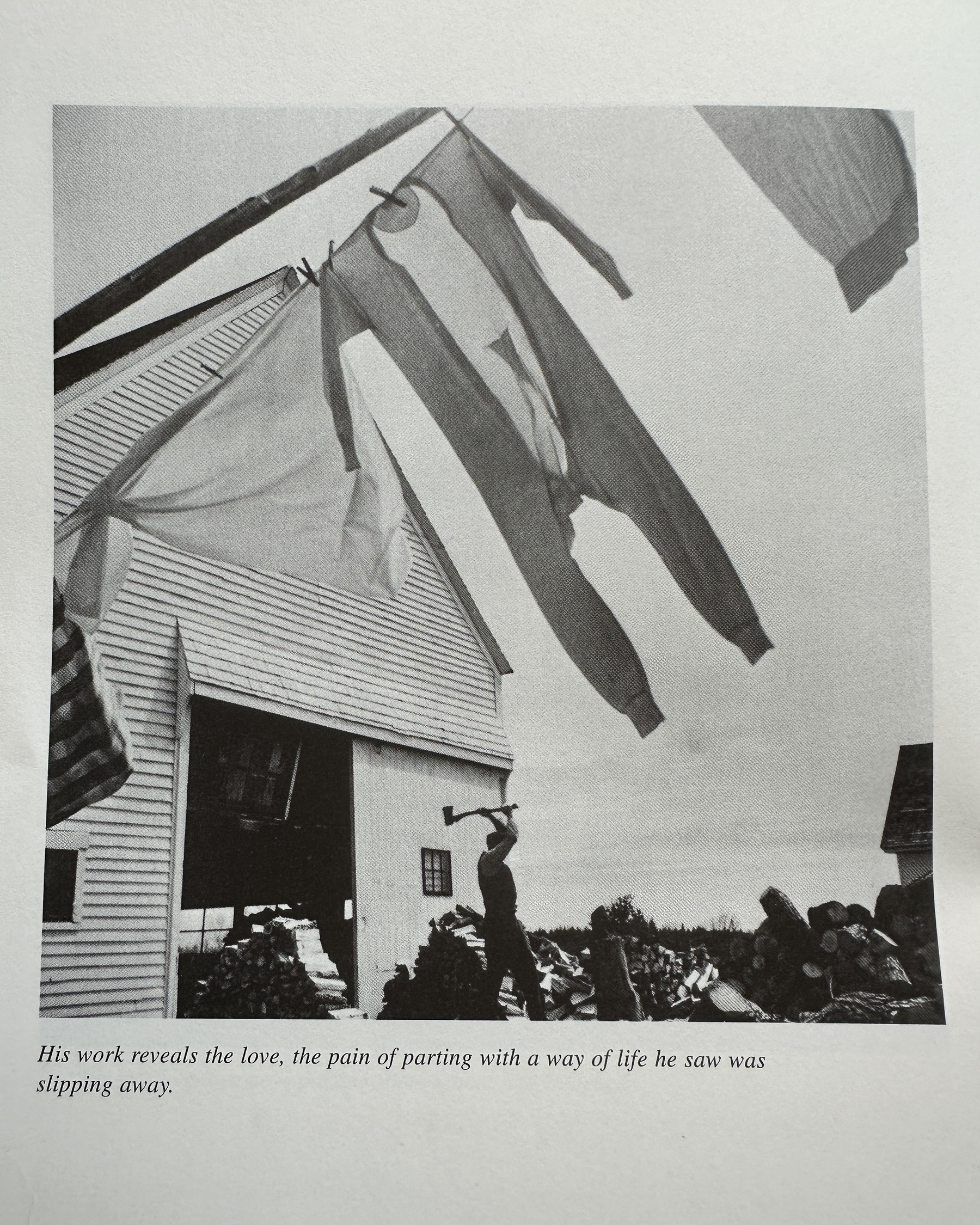Naomi Shihab Nye:

Naomi Shihab Nye:

I have not succeeded this week in having a genuine day of Shabbat. But I did get a good reminder that Good News, in its simplest and everyday form, is also stripped of human elaboration. It’s good to let it be simple.
Quick stop at Broad Arrow Farm • Naturally, their motto “Do you know where your food comes from?” reminds me of this. 🙂

Meghan’s random book grab today. I figure the subtitle could just as well have been “A Brief Jaunt Through Human History.” Or even “A Brief Jaunt Through My Own History.” 🤓
From the epigraph: “To every kid with a little daydream and every grown-up with a big idea …”

“Mournful punditry” — Some thoughts from this week.
📚Happy New Book in the Mail Day! Celebrate accordingly

Werntz’s worthy critique notwithstanding — what, after all, is wrong with “squinting very hard,” and don’t we end up doing that anyway? — I’m definitely ordering Bretherton’s book. And checking out his “Listen, Organize, Act” podcast.
I love Jennifer Roberts’ phrase “the formative powers of delay”.
…Patience
comes to the bones
before it takes root in the heart
as another good idea.
— Mary Oliver
Power always sincerely, conscientiously, de tres bon Foi, believes itself Right. Power always thinks it has a great Soul, and vast Views, beyond the Comprehension of the Weak; and that it is doing God Service, when it is violating all his Laws. Our Passions, Ambition, Avarice, Love, Resentment &c possess so much metaphysical Subtilty and so much overpowering Eloquence, that they insinuate themselves into the Understanding and the Conscience and Convert both to their Party.
Photo by Kosti Ruohomaa in his and Lew Dietz’s 1977 essay-photo collection Night Train at Wiscasset Station.

I was recently reminded of Richard Wilbur’s poem “Love Calls Us to the Things of This World,” which reminds me of this photograph — which reminds me of Wilbur’s poem.
At some point I’d love to say more about what is surely one of the best books about Maine there is.